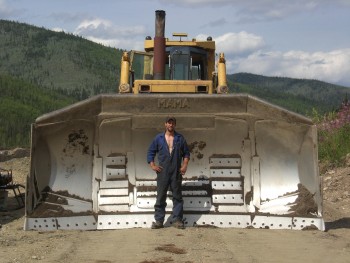Many of my clients want to know what I am following at the moment. This I believe is the signal cut away from all the noise in the markets. If you are not a client this information should not be judged as personal advice in any way. It is merely a couple of articles I have been reading.
In the very short term it feels as if global equities have run too far too fast and a setback is welcome, if not yet inevitable. A number of important indices are looking very overbought technically, but it is important to remember that this is a bull market, meaning that the falls are likely to be shorter and shallower than anyone expects. Something will go wrong somewhere – maybe poor company earnings, or European politics, or a banking scandal, who knows – but markets will brush it off quickly.
Jim Wood-Smith, Chief Investment Strategist, Investec Wealth
“Currently what we have is a lot of money is in cash. And cash is a bad thing and it’s not natural that it came to be cash because the central banks printed a lot of money – so they put out a lot of cash. That’s what Japan is doing, too, because it needs to do that. So it produces a lot of cash within the system. In addition, because you have the risks, people want to be safe. So they put their money in cash – and there’s a lot of cash hanging around… It’s a natural consequence, and what will happen is the next big moves in the markets, and the next big moves in the economy, will be based on how the cash moves. Because [cash] is a bad investment. It has a negative real return. It has a return that’s substantially lower than the economy’s growth rate. And at the same time, we’re in a situation where risks are being reduced. So the fear, the desire, to hold that cash is reduced. You can go out on the risk spectrum, because they’re reduced for the reasons we’re talking about. At the same time, if you’re an investor, you can start to move out of the cash, because you’re missing out on returns… As that happens, I think 2013 is likely to be a transition year. Where that cash, large amounts of cash… that will start to change. It will also move. It will move to stuff. It will move to all sorts of stuff. It will move to goods, services and financial assets. So, that will include most goods, services and financial assets. People will spend more with the cash. They will — and that will help the economy. It will move into equities. It will move into gold. It will move… out onto that curve. As that happens, what happens is, it makes the Federal Reserve’s concerns begin to change. Because, by putting the cash in they’ve lessened the risks. As the risks have lessened and that movement starts to move then the tilt starts to change. That’s probably something that won’t happen immediately. This is like a classic transition year, I think. And then as you get later into the year, I think that we’re going to see more of that.”
Ray Dalio. In 1975, he founded the Westport, Connecticut based investment management firm, Bridgewater Associates. As of January 2012, the company is the largest hedge fund in the world with nearly $120 billion under management.
It is liquidity that drives shares and commodities and if the big boys feel the market will continue to rise it usually does because they are committing huge amounts of client funds which drive markets higher. There is a saying in investment.
Never stand in front of a moving bulldozer because you will get run over.
Anon. If the market is moving – jump aboard. There will be times when we get tested as bad news hits, and we don’t know when that is going to happen, but they will pass and the momentum should continue.

